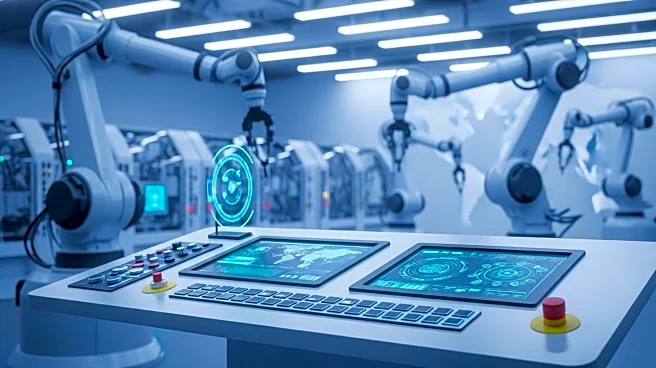What is the story about?
What's Happening?
Cellares, a leading Integrated Development and Manufacturing Organization (IDMO), has announced the appointment of Christopher McDonald to its Advisory Board. McDonald brings extensive experience from his previous role as Senior Vice President and Global Head of Technical Operations at Kite, a Gilead Company. His expertise in global manufacturing, quality, and supply chain management is expected to support Cellares' expansion of its IDMO Smart Factory network across the United States, Europe, and Japan. McDonald has a 35-year career history with leadership roles at Amgen, Novartis, and AstraZeneca, and currently serves on the Board of Directors of Nucleus RadioPharma. His appointment is seen as a strategic move to leverage his experience in scaling commercial cell therapy operations, which aligns with Cellares' mission to provide scalable and cost-effective cell therapy manufacturing solutions.
Why It's Important?
The appointment of Christopher McDonald is significant for Cellares as it seeks to expand its global manufacturing capabilities. McDonald's experience in scaling large commercial cell therapy operations is crucial for Cellares' goal to offer biopharma partners a reliable and scalable manufacturing infrastructure. This move is expected to enhance Cellares' ability to meet the growing demand for cell therapies, potentially lowering manufacturing costs and increasing accessibility to life-saving treatments. The expansion of Cellares' IDMO Smart Factory network could also position the company as a leader in the cell therapy manufacturing industry, providing a competitive edge in the biopharmaceutical sector.
What's Next?
Cellares plans to continue building its global network of IDMO Smart Factories, with additional facilities under construction in Europe and Japan. The company aims to deploy its proprietary Cell Shuttle and Cell Q technologies in these factories, enabling them to produce significantly more cell therapy batches than conventional CDMOs. This expansion is expected to accelerate cell therapy development and manufacturing, meeting global patient demand more efficiently. Stakeholders, including academic medical centers, biotechnology companies, and pharmaceutical firms, may benefit from reduced process failure rates and lower manufacturing costs, potentially leading to faster delivery of therapies to patients.















